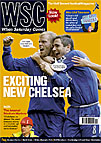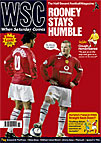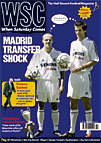 Manchester Utd and Arsenal play out yet another ill-tempered game
Manchester Utd and Arsenal play out yet another ill-tempered game
“That game, with the baggage that goes with it, is almost becoming an impossible match to referee, and I speak from personal experience.” So said former Premiership referee Jeff Winter after the latest outbreak of hostilities between two implacably opposed foes, an event also known as Man Utd v Arsenal.

